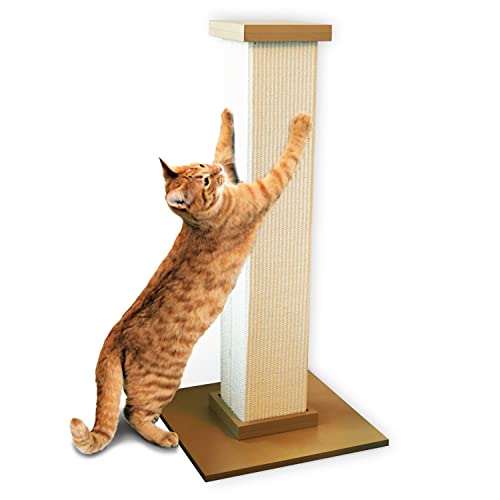



To safeguard against intestinal parasites, regular deworming is essential. It’s crucial to consult with a veterinarian for a tailored treatment plan suitable for your furry companion.
Exposure to contaminated environments, such as parks or areas frequented by other animals, can lead to infection. Keeping your surroundings clean and monitoring where your four-legged friend roams minimizes these risks.
Diet plays a significant role as well. Consuming raw or undercooked meat may introduce unwanted guests. Always opt for high-quality, commercially prepared food to ensure safety and health.
Fleas also contribute to parasite transmission. Implementing a consistent flea control regimen helps prevent unwanted infestations and the potential for additional health issues.
By staying vigilant about hygiene, diet, and preventive care, you can help maintain a healthy and happy life for your beloved pet.
Causes of Intestinal Parasites in Felines
Regular veterinary check-ups are essential for keeping my health in check. These appointments can help identify and treat any intestinal parasites effectively.
Common Sources of Infection
- Contact with infected animals, including strays and wildlife.
- Ingestion of contaminated food or water.
- Exposure to environments where feces are present, like parks or yards.
- Consuming raw or undercooked prey.
Prevention Tips
- Maintain a clean living environment, free from feces.
- Ensure my food and water are fresh and uncontaminated.
- Limit contact with unknown animals.
- Use preventive medications as recommended by the vet.
Awareness and proactive measures help in reducing risks associated with these parasites. Regularly checking for signs, such as changes in appetite or behavior, is crucial for prompt action.
Common Types of Worms Found in Felines
Understanding the different parasites that can affect us is key to staying healthy. Here are the most common types:
Roundworms
Roundworms are cylindrical and can grow quite large, often reaching several inches in length. They can be transmitted through contaminated soil or feces. Symptoms include a bloated belly, weight loss, and vomiting. Regular deworming and maintaining a clean environment can help prevent infections.
Tapeworms
These flat, segmented parasites attach themselves to the intestinal walls. They are usually visible in feces as small, rice-like pieces. The primary transmission method is through ingesting infected fleas or rodents. Signs include weight loss despite a good appetite and itching around the rear. Regular flea control and monitoring for any signs of infection are essential.
How Felines Contract Intestinal Parasites from Their Surroundings
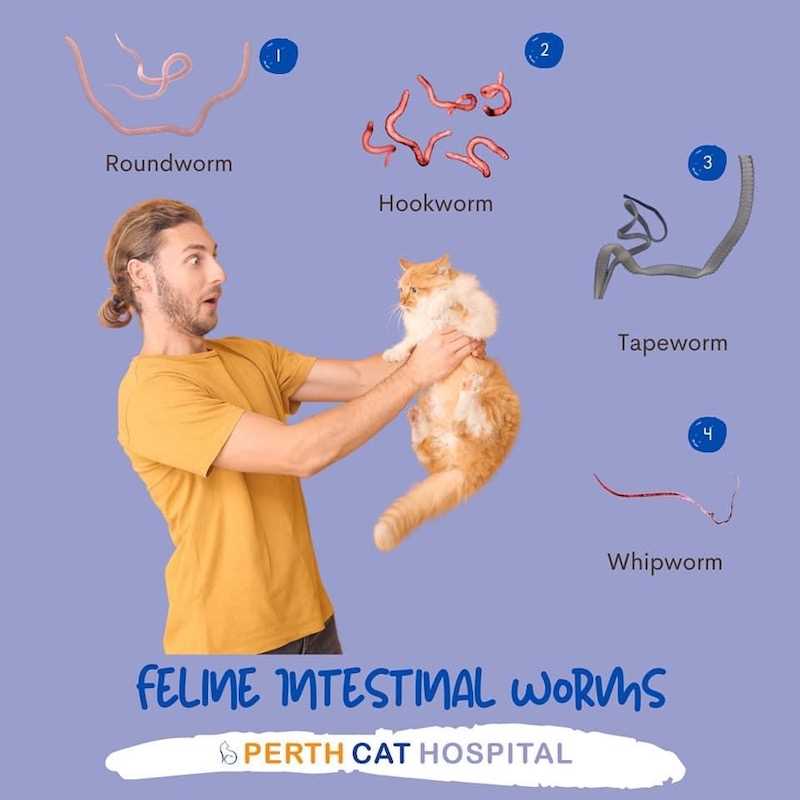
Direct exposure to contaminated soil or water sources is a primary route for acquiring these unwanted guests. I always recommend ensuring that my drinking setup, like the best type of water bowl for cats, is clean and fresh to minimize risks.
Engaging with infected rodents or insects can lead to transmission. When I’m outside, I’m careful about where I play; hunting behaviors can expose me to parasites residing in prey.
Another concern is shared spaces with other animals. If a friend or neighbor’s pet has a parasitic infection, it can spread to me through shared litter boxes or even through casual contact. Keeping my environment as parasite-free as possible is essential.
Regular cleaning routines and maintaining a tidy living area help reduce the likelihood of encountering these pests. Monitoring my health and visiting the vet for routine checks ensures I stay healthy and parasite-free.
Symptoms Indicating Your Feline Might Have Intestinal Parasites
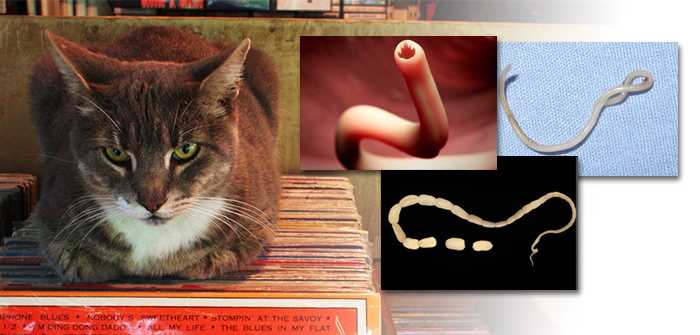
Noticeable changes in behavior and health can signal the presence of intestinal parasites. Look for these signs:
1. Altered Appetite
An increase or decrease in appetite can indicate an infestation. Some may eat more due to irritation, while others might refuse food altogether.
2. Weight Fluctuations
Unexplained weight loss despite a normal diet often points to a problem. If the little one seems to be losing weight, it’s worth checking for these unwelcome guests.
3. Vomiting and Diarrhea
Frequent vomiting or diarrhea can signal irritation in the digestive system. If you see these symptoms, especially with visible worms in the stool or vomit, take action immediately.
4. Unusual Coat Condition
A dull, unkempt coat can be a sign of nutrient absorption issues caused by parasites. Your furry friend may also groom excessively, trying to alleviate discomfort.
5. Lethargy
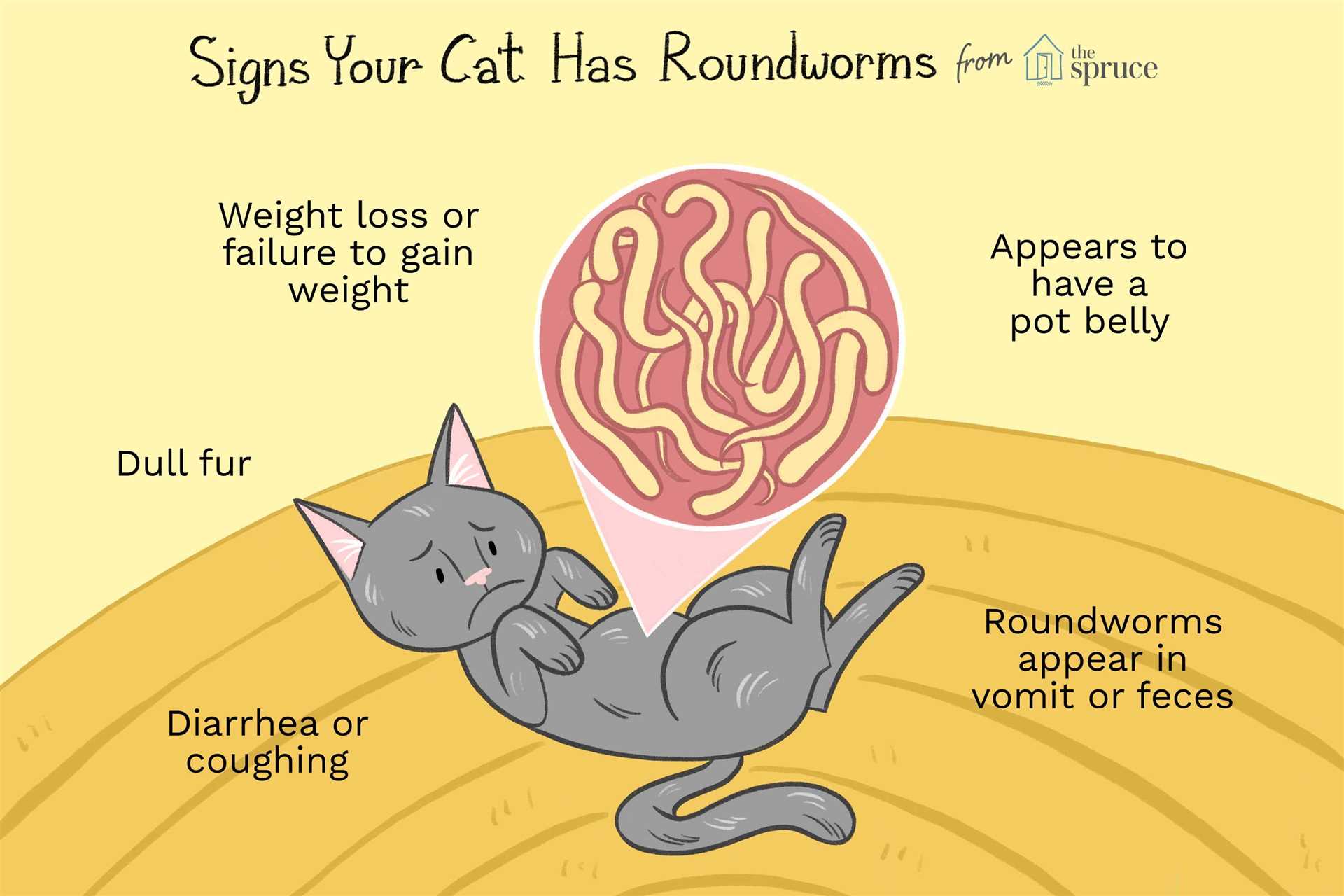
Feeling unusually tired or disinterested in play may suggest underlying health issues. If your companion seems more tired than usual, it’s time to investigate further.
For any concerning symptoms, consulting a veterinarian is essential. Keeping your environment clean can help prevent these issues. For tips on maintaining a healthy space, check out how to lower total alkalinity in fish tank.
Preventative Measures to Protect Your Feline Friend from Intestinal Pests
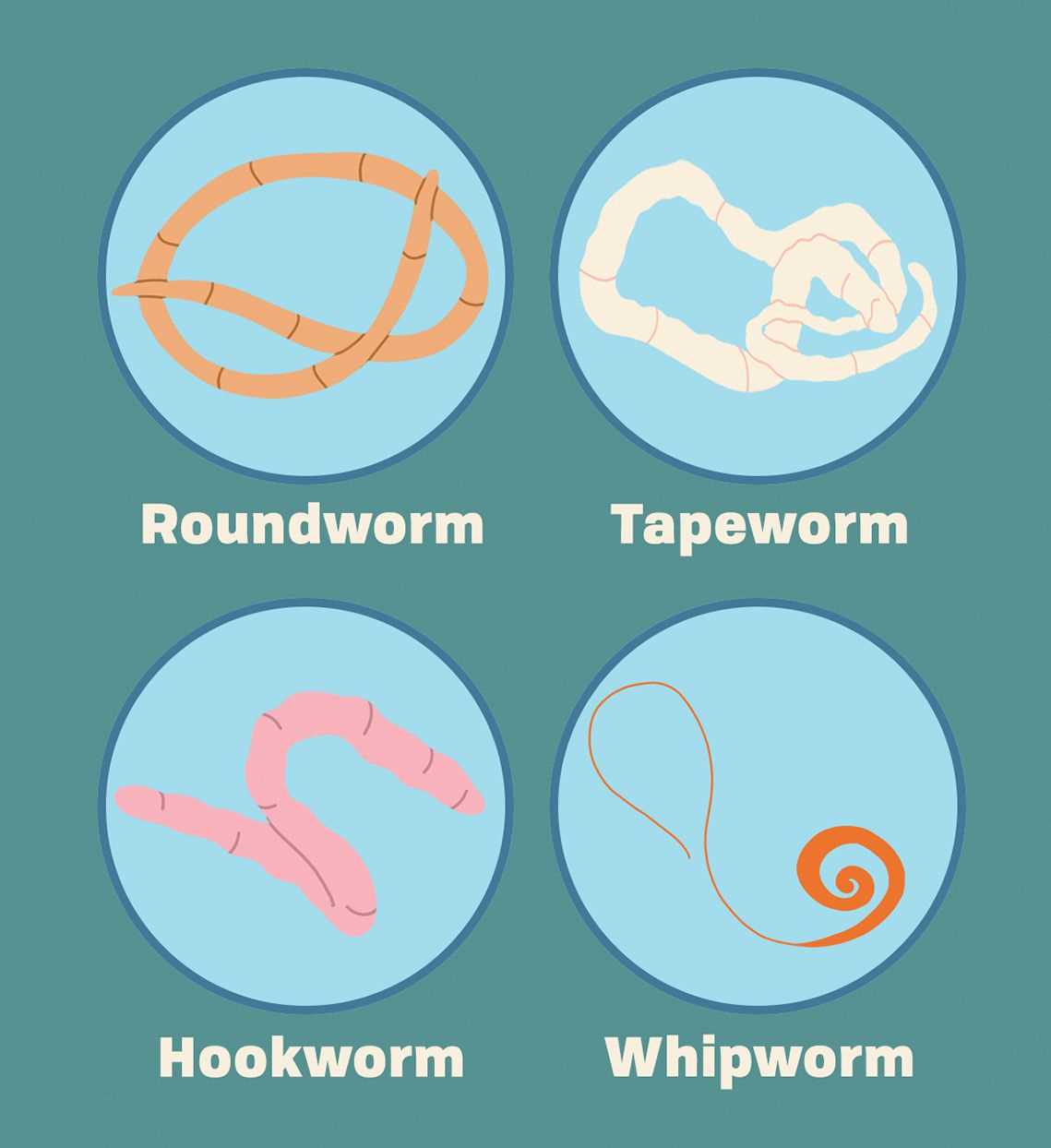
Regular vet check-ups are non-negotiable. Scheduling routine examinations helps catch any signs of infestations early. Ensure your humans take me in for check-ups at least once a year.
Maintain a Clean Environment
Keeping my living area tidy is key. Regularly clean litter boxes and avoid letting me roam in areas where other animals might leave droppings. This reduces exposure to potential hazards.
Choose Safe Food Sources
Feeding me high-quality, commercially prepared food reduces the risk of ingesting contaminated items. Avoid raw meats and fish, as they can harbor harmful organisms. Always check that my food is fresh and properly stored.
| Preventative Measure | Description |
|---|---|
| Routine Vet Visits | Annual examinations help detect any issues early. |
| Hygiene | Regularly clean litter boxes and living spaces. |
| Safe Feeding | Provide high-quality food; avoid raw diets. |
| Parasite Control | Use vet-recommended preventive treatments regularly. |
Regular treatment for external pests is just as important. Ask my humans to use vet-approved preventive medications to keep me safe from fleas and ticks, which can also transmit unwanted guests.
Treatment Options for Felines Infected with Intestinal Parasites
Consult a veterinarian immediately if you suspect a parasitic infestation. They will recommend appropriate treatments based on the specific type of parasite affecting you. Common medications include:
- Pyrantel Pamoate: Effective against roundworms and hookworms, typically administered as a single dose.
- Praziquantel: Targets tapeworms, often given in a single application or as a series of doses.
- Fenbendazole: A broad-spectrum dewormer effective against various parasites, usually given over several days.
- Emodepside: A newer option that works against multiple types of worms, often found in topical formulations.
After treatment, a follow-up appointment is crucial to ensure the parasites have been eradicated. Your veterinarian may recommend:
- Re-testing stool samples to confirm the absence of eggs or larvae.
- Monitoring for any recurring symptoms that may indicate a persistent issue.
- Adjusting the treatment plan if necessary, based on the response to initial therapy.
While medications are essential, maintaining a clean environment can prevent future infestations. Regularly clean litter boxes and avoid areas where other animals may defecate. Additionally, keeping a close eye on your eating habits can help identify any potential re-infestation early.
Always follow your vet’s dosage instructions, as improper use of dewormers can lead to resistance and treatment failure. Regular check-ups can help catch any issues early, keeping you healthy and happy.



